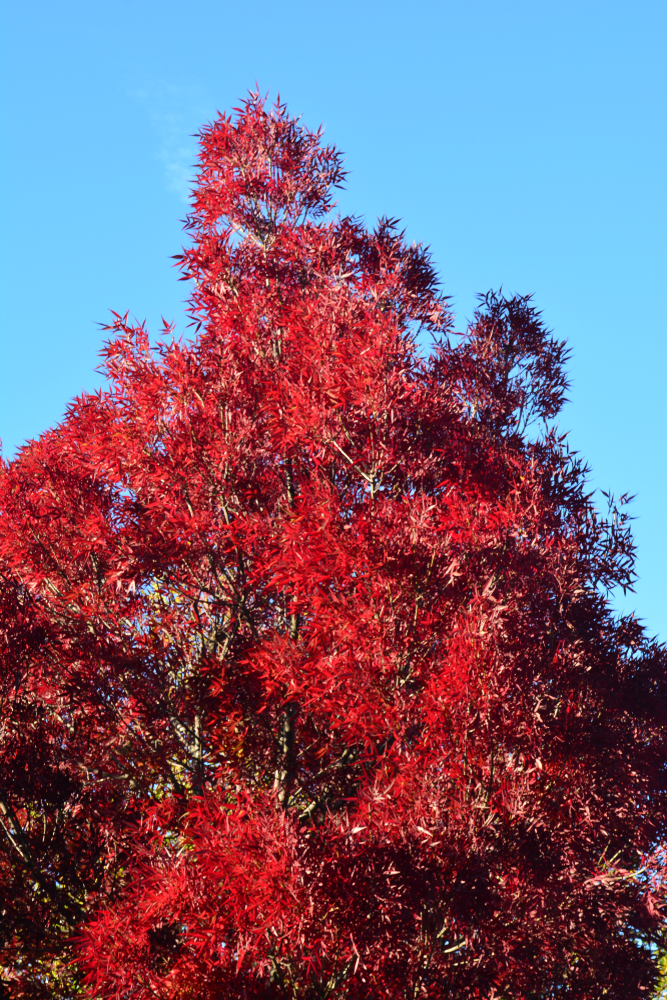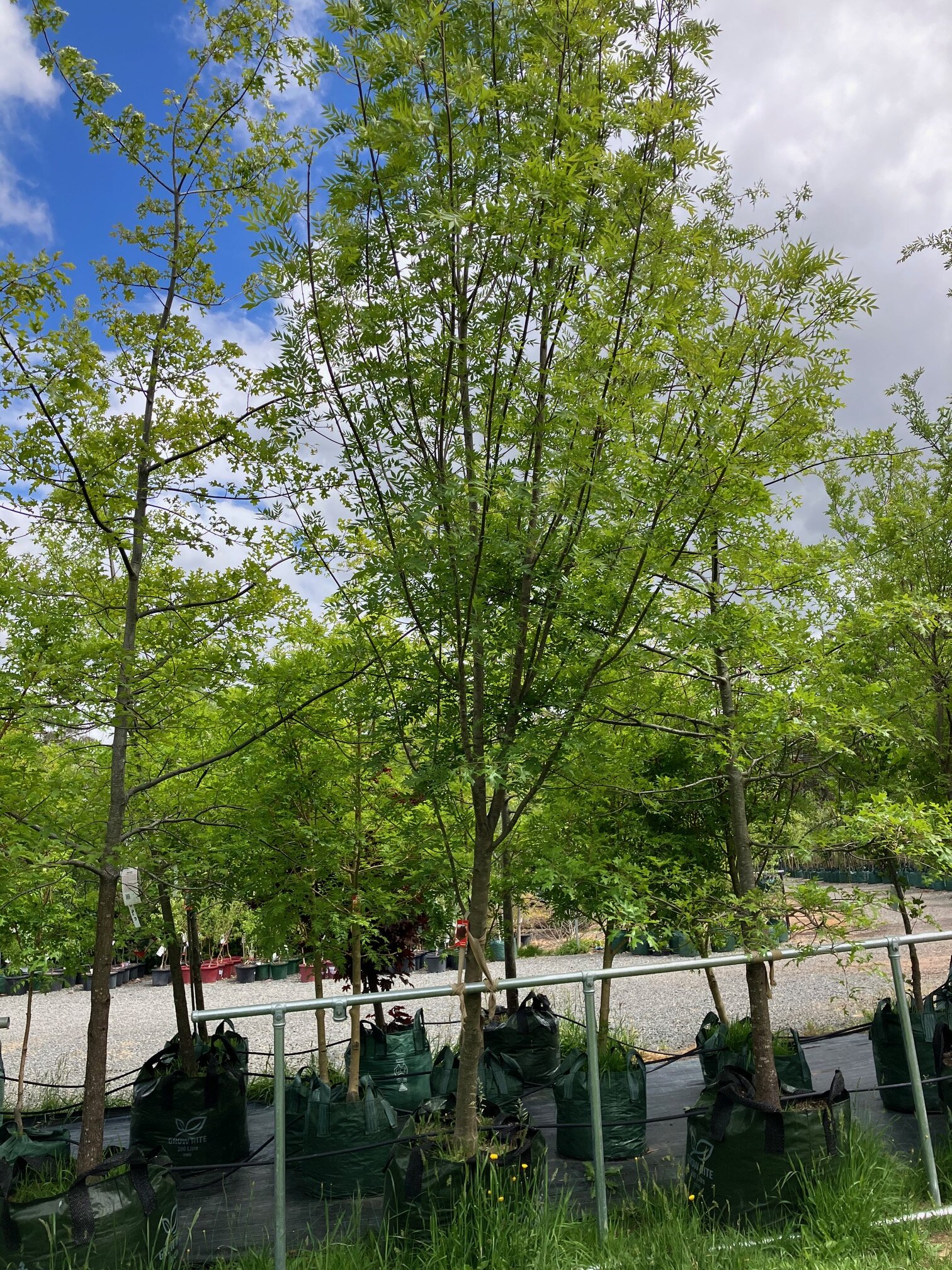Fraxinus angustifolia ‘Raywood’ 200L ADVXG TREE DECIDUOUS
$2,000.00
Fraxinus is a genus of flowering plants in the olive and lilac family, Oleaceae. The most common species in this genus is Fraxinus excelsior, also known as the European ash tree. Here are some horticultural notes on the genus Fraxinus:
Growing conditions: Fraxinus species are generally hardy trees that prefer full sun to partial shade. They grow well in most soil types, but prefer moist, well-drained soils.
Propagation: Fraxinus can be propagated from seed or by grafting. Seeds should be sown in the fall, and will require stratification (cold treatment) before germination. Grafting is typically done in the spring.
Watering: Fraxinus trees require regular watering, particularly during the first few years of growth. After they are established, they are fairly drought-tolerant.
Fertilizer: Fraxinus trees benefit from regular fertilization with a balanced fertilizer. Fertilizer should be applied in the spring and fall.
Pruning: Prune Fraxinus trees in the late winter or early spring, before new growth begins. Remove any dead, diseased, or crossing branches. Thin out the center of the tree to promote air circulation.
Pests and diseases: Fraxinus trees are susceptible to a variety of pests and diseases, including emerald ash borer, ash yellows, and verticillium wilt. Regular monitoring and treatment with insecticides or fungicides may be necessary.
Flowering: Fraxinus trees produce small, inconspicuous flowers in the spring before the leaves emerge.
Fall color: Many Fraxinus species have attractive fall foliage, with leaves turning shades of yellow, orange, and red.
Wood use: Fraxinus wood is used for a variety of purposes, including furniture, flooring, and tool handles. The wood is hard, strong, and resilient.
3 in stock
Description
- Family Name: Oleaceae
- Origin: Australia
- Characteristics:
- Foliage Colours: Purple, Green
- Flower Colours: Purple
- Flower Fragrant: No
- Flowering Season: Spring
- Fruit: Yes
- Landscape Use(s): Borders / Shrubbery, Coastal Garden, Feature, Foliage Feature
/ Colour, Formal Garden, Low Water Garden, Native Garden,
Parks & Gardens, Shade Tree, Shady Garden
- Pest & Diseases: Generally Trouble Free
- Plant Care: Keep Moist During Dry Periods, Mulch Well
- Requirements:
- Growth Rate: Fast
- Maintenance Level: Medium
- Water Usage: Medium
- Tolerances:
- Drought: Moderate
- Frost: High
- Wind: Moderate
- Cultural Notes: Can handle a range of soil types but performs best in moist, well drained soil in full sun.



